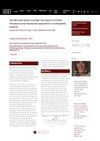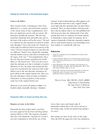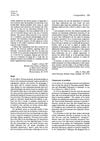Search
for
Sort by
Research
270-300 / 1000+ results
research Exploring Mesenchymal Stem Cells Versus Minoxidil for Androgenic Alopecia Treatment: A Detailed Animal-Based Histological and Morphometric Study
Stem cells from umbilical cord blood are more effective than minoxidil for treating hair loss.

research Low-Dose Oral Minoxidil and Associated Adverse Events: Analyses of the FDA Adverse Event Reporting System With a Focus on Pericardial Effusions
Low-dose oral minoxidil can cause serious side effects like heart issues, so use the lowest effective dose.

research Low Dose Oral Minoxidil in COVID-19-Associated Telogen Effluvium: A Retrospective Analysis of 69 Patients
Low-dose oral minoxidil helps hair regrowth in COVID-19-related hair loss with few side effects.

research Topical Minoxidil Overdose in a Young Man With Androgenetic Alopecia: A Case Report
Using too much topical minoxidil can cause serious side effects like dizziness and low blood pressure.

research Patient-Reported Outcomes of Topical Finasteride/Minoxidil Treatment for Male Androgenetic Alopecia: A Retrospective Study Using Telemedical Data
Topical finasteride/minoxidil is effective but not better than oral finasteride for hair loss.

research Comparison of Minoxidil Sulfotransferase Activity Between Scalp Hair, Eyebrows, and Eyelashes: Implication for Minoxidil Efficacy for Off-Label Use
Minoxidil is less effective on eyebrows and eyelashes than scalp hair because these areas have lower enzyme activity needed to activate the drug.

research Low-Dose Oral Minoxidil Improves Hair Length and Global Hair Density in Short Anagen Syndrome
Low-dose minoxidil helps hair grow longer and thicker in people with short anagen syndrome.

research Topical Minoxidil and Dietary Supplement for the Treatment of Chemotherapy-Induced Alopecia in Childhood: A Retrospective Cohort Study
Topical minoxidil and dietary supplements improved hair regrowth in children with hair loss from chemotherapy.

research Successful Topical Minoxidil Treatment for Hair Density and Length in Trichorhinophalangeal Syndrome Type 1
Minoxidil improved hair growth in a child with a rare genetic disorder.

research Oral Minoxidil Media Coverage: The Impact on Patient Perceptions and Practitioner Approaches to Androgenetic Alopecia
Media coverage increased public interest in oral minoxidil for hair loss but may also spread misinformation.

research Recurrent Cardiac Tamponade Due to Minoxidil Associated Drug Induced Lupus Erythematosus
Minoxidil can cause a rare but serious condition that leads to fluid buildup around the heart and drug-induced lupus.

research Efficacy and Safety of Combinational Therapy Using Topical Minoxidil and Microneedling for the Treatment of Androgenetic Alopecia: A Systematic Review and Meta-Analysis
Using minoxidil with microneedling increases hair count for hair loss without serious side effects.
research Finasteride/Minoxidil

research Evaluation of Hair Regrowth After Minoxidil and Dutasteride Tattooing in Men with Androgenetic Alopecia
Minoxidil-dutasteride tattooing can potentially help regrow hair, especially in men who already have some thin hair.

research Androgenetic Alopecia: Recognizing Clinical Manifestations to Management
AAG causes hair loss in many people, with limited treatments like finasteride, minoxidil, light therapy, and hair transplants.

research Minoxidil and Its Use in Hair Disorders: A Review
Minoxidil is a primary treatment for hair loss but its exact working method is unknown.

research Fundamentals
Finasteride and minoxidil are effective, low-risk treatments for male hair loss, and patient education on these therapies is important.

research Letter: Defining the Frontal Area in Hair Restoration Surgery
The letter discusses a disagreement about the definition of the "frontal area" in hair restoration surgery and questions the effectiveness of treatments like finasteride and minoxidil on this area.

research Hair Loss
The article concludes that hair loss has many causes and treatments, with medication options like finasteride and minoxidil for men, and minoxidil, hormones, or iron for women, while warning against unproven remedies.
research Topical Minoxidil for Chemotherapy-Induced Hair Loss

research Reply
Dr. Jorizzo questions the long-term benefits of minoxidil and tretinoin, while Dr. Olsen defends their effectiveness and stresses the need for public education on these treatments.

research Trilayer Dissolving Microneedle for Transdermal Delivery of Minoxidil: A Proof-of-Concept Study
The three-layer microneedle system effectively delivers minoxidil into the skin, showing potential as a safe and efficient treatment for hair loss.

research Efficacy and Safety of Low-Dose Oral Minoxidil in the Management of Androgenetic Alopecia
Low-dose oral minoxidil is effective and safe for treating hair loss in men and women.

research Retrospective Review of Oral and Topical Minoxidil for Cancer Treatment-Induced Hair Loss
Minoxidil may help with hair loss caused by cancer treatments.
research Alfatradiol/Minoxidil/Trichofoam
research Clobetasol/Minoxidil
research Low-Level Light Therapy and Minoxidil Combination Treatment in Androgenetic Alopecia: A Review of the Literature
Combining low-level light therapy with minoxidil helps hair regrowth better than using minoxidil alone, especially early on.

research Comparison Between 5% Minoxidil Plus 2% Flutamide Solution vs. 5% Minoxidil Solution in the Treatment of Androgenetic Alopecia
Using both minoxidil and flutamide together is more effective for treating hair loss than using minoxidil alone.

research Comparative Histological and Immunohistochemical Study on the Effect of Platelet-Rich Plasma and Minoxidil, Alone or in Combination, on Hair Growth in a Rat Model of Androgenic Alopecia
Using both platelet-rich plasma and minoxidil together gives the best results for hair growth in male rats with hair loss.